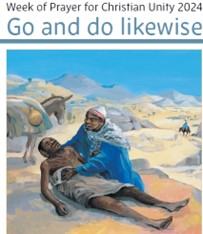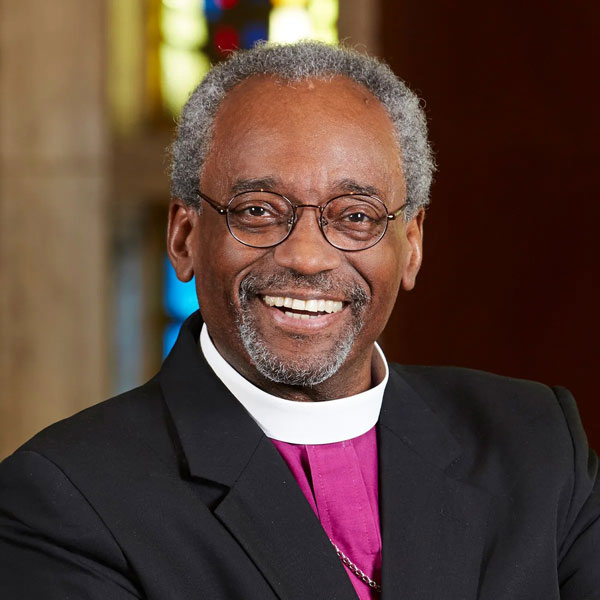Gospel and Sermon
2024 Sun Jan 14
Confession of St. Peter, Jan 18, 2024

"St. Peter"- Peter P. Rubens
This is not a confession of the church but relates to Peter, the Apostler !
Jesus went to the predominately pagan region of Caesarea Philipp. Here is the Mark reading (Mark 8:27-30) ” Jesus went on with his disciples to the villages of Caesarea Philippi; and on the way he asked his disciples, “Who do people say that I am?” And they answered him, “John the Baptist; and others, Elijah; and still others, one of the prophets.” He asked them, “But who do you say that I am?” Peter answered him, “You are the Messiah.” And he sternly ordered them not to tell anyone about him.” Peter nailed it at this time
Jan 18 is the day appointed for this event. The collect – "Almighty Father, who inspired Simon Peter, first among the apostles, to confess Jesus as Messiah and Son of the living God: Keep your Church steadfast upon the rock of this faith, so that in unity and peace we may proclaim the one truth and follow the one Lord, our Savior Jesus Christ; who lives and reigns with you and the Holy Spirit, one God, now and for ever. Amen. "
Week of Prayer for Christian Unity, Jan 18-25, 2024
Traditionally the week of prayer is celebrated between 18-25 January, between the feasts of St Peter and St Paul.
Check out the event website. The chosen theme is ‘You shall love the Lord your God… and your neighbor as yourself’ (Luke 10:27). Go and do likewise!

The materials for 2024 were prepared by an ecumenical team from Burkina Faso Burkina Faso is located in West Africa in the Sahel region, which includes the neighboring countries of Mali and Niger with It has 21 million inhabitants. 64% of the population is Muslim, 9% adheres to traditional African religions and 26% is Christian (20% Catholic, 6% Protestant).
From the materials “Burkina Faso is currently experiencing a serious security crisis, which affects all the communities of faith. After a major jihadist attack was mounted from outside the country in 2016, the security situation in Burkina Faso, and consequently its social cohesion, deteriorated dramatically. The country has endured a proliferation of terrorist attacks, lawlessness and human trafficking. This has left over three thousand dead and almost two million internally displaced persons in the country. Thousands of schools, health centers and town halls have been closed, and much of the socio-economic and transport infrastructure has been destroyed. Attacks targeting specific ethnic groups exacerbate the risk of inter-communal conflicts. In the context of this dire security situation, social cohesion, peace and national unity are being undermined.
“Christian churches have been expressly targeted by armed attacks. Priests, pastors and catechists have been killed during worship and the fate of others who were kidnapped remains unknown. At the time of writing, more than 22% of the national territory is outside the control of the state. Christians can no longer openly practice their faith in these areas. Because of terrorism, the majority of Christian churches in the north, east and north-west of the country have been closed. There is no longer any public Christian worship in many of these areas. Where worship is still possible, with police protection, usually in large cities, it has been necessary to shorten services owing to security concerns.
“Nevertheless, a degree of solidarity is emerging between the Christian, Muslim and traditional religions. Their leaders are working to find lasting solutions for peace, social cohesion and econciliation. …”
“Following the government’s calls for prayers for peace, social cohesion and reconciliation, individual churches continue to organize daily prayers and fasting. Action by the various Catholic and Protestant churches has intensified to assist displaced persons. Reflection and awareness-raising meetings have been organized to promote better understanding of the situation and of the value of fraternity, and to develop strategies for a return to lasting peace.
“The invitation to work together on the texts for the Week of Prayer for Christian Unity 2024 challenges the different churches in Burkina Faso to walk, pray and work together in mutual love during this difficult period for their country. The love of Christ that unites all Christians is stronger than their divisions and the Christians of Burkina Faso commit themselves to walking the path of love of God and love of neighbor. They are confident that God’s love will overcome the violence that currently afflicts their country.”
“The churches of Burkina Faso have invited us to join with them in a process of self-reflection as they consider what it means to love our neighbor in the midst of a security crisis
In Pursuit of Peter – Confession

Caesarea Philippi
The first 5 minutes are the most important. You are there at the same place where the confession occurred.
Transcript of the key moment
“Jesus has come to this center for pagan worship.( Caesarea Philippi in Israel). Everything here would be abhorrent to a conservative jew, like Peter. The deities of the pagan world were more active, and more powerful in certain locations than others, and this surreal-looking place, to them, was a place where you could expect deities to be active. what you’re standing on here would be full of worshipers… of the deity, pan, whose statue is going to be tucked in here. In fact, Eusebius, the church historian, says this cave was the entrance to hades. Many people made the trek here to worship the Greek god, Pan. Pan was half human, with the hind legs and the horns of a goat. His powers were said to rule over nature, and especially fertility. the words “panic” and “pandemonium” have their origins in the myths surrounding pan. The religious expression of pan’s worshipers played out in acts of raw lust and hedonism. The scene to be deeply disturbing to Peter – every norm of observant Judaism would be violated. A high point for Peter’s discipleship of Jesus occurs here. You know Jesus begins by asking them, “who do people say that i am?” some of the disciples say, “you’re a prophet, “some say you’re Elijah.” And Peter finally nails it, “you are the Christ, the messiah, the son of god, “fulfillment of messianic promises.” And that’s a huge moment, and Jesus, in effect, says, “you got it.”
“When Jesus asked the disciples, “who do people say that i am?” and he starts to hear answers that fit the sea of galilee context, he says, “but what about you?” and Peter’s right there. He’s going, “oh, i get it. “You want us to put the question in the right context. “You are the Christ,” and then he adds, “the son of the living god. in contrast to everything “that’s claiming authenticity here, you’re the real deal.” Jesus affirms what Peter said, and this is also a very significant statement. He says, “this has been revealed to you “by my heavenly father,” and then he says, “you are Peter,” and remembering that Peter means rock, “and on this rock i will build my church.” and this is an extraordinary moment for Peter.”
The Way of Love – in summary

1. From the book Love is the Way by Michael Curry
“Love is a firm commitment to act for the well-being of someone other than yourself. It can be personal or political, individual or communal, intimate or public. Love will not be segregated to the private, personal precincts of life. Love, as I read it in the Bible, is ubiquitous. It affects all aspects of life.”
“Love is a commitment to seek the good and to work for the good and welfare of others. It doesn’t stop at our front door or our neighborhood, our religion or race, or our state’s or your country’s border
